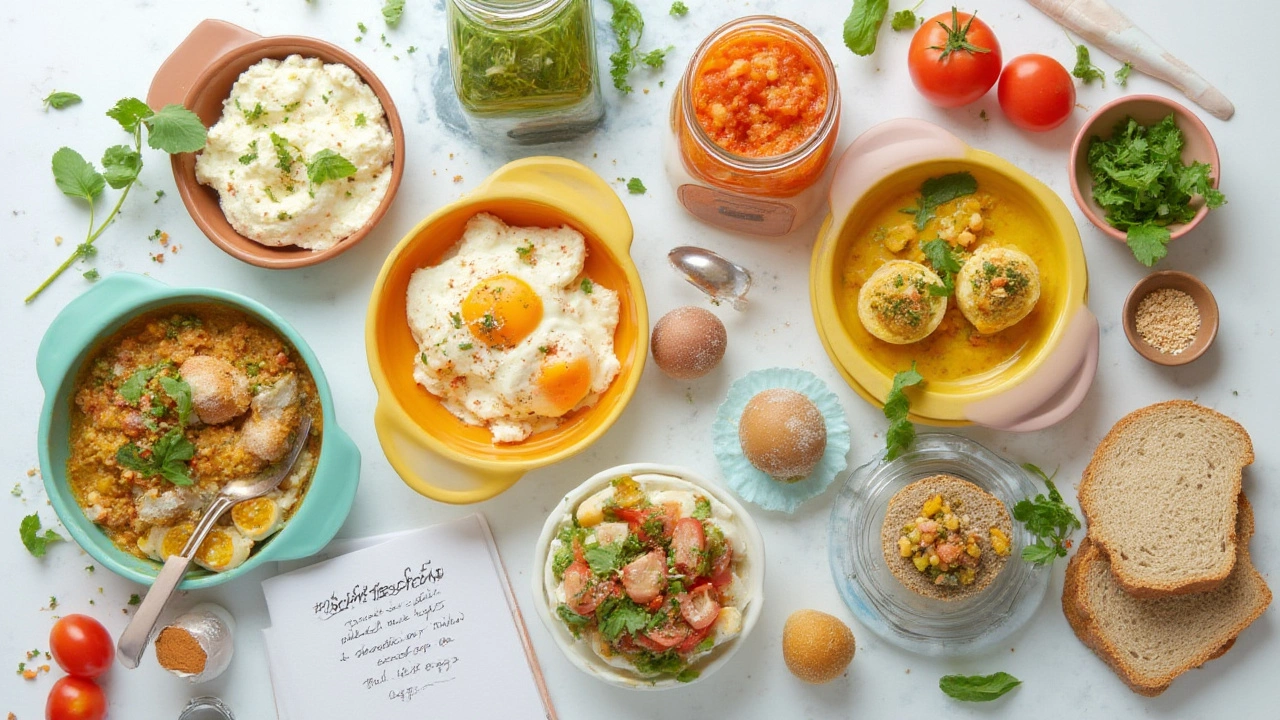Isn’t it wild that the average South African eats about 160 eggs a year? That’s over 3 eggs a week on average. People love eggs for obvious reasons—quick, cheap, and full of protein—but the truth is, eggs can also rescue you from endless “what’s for lunch” disasters if you get serious about meal prepping them. Picture being able to crack open your fridge at breakfast, lunch, or dinner and—bam!—there’s a ready-to-go protein hero. But not all egg preps are equal. Some ways keep them tasting fresh longer, while others can ruin your whole batch in a couple of days. Here’s how you get it right without falling into slimy yolk territory.
Choosing the Best Egg Prep Methods
Start with the big question: what egg prep works for your rhythm? If you’re always on the fly, boiled eggs are your best friend. Boil a dozen on Sunday, peel them (trust me, peeling now saves you stress later), and stash them in an airtight container. Here’s the thing about hard-boiled eggs: when peeled, they keep for a solid three to four days; with the shell, they might go almost a week, but they’re messier in a lunchbox. I always go for peeled, separated by paper towels to keep them dry, and keep them on the fridge shelf—not in the door—where temps are steadier.
If bland isn’t your vibe, look into egg muffins. Whisk a bunch of eggs, throw in chopped peppers, spinach, cheese, and a dash of salt, then pour that mix into a muffin tin. Twenty minutes later, you’ve got bite-sized omelettes perfect for grab-and-go meals and even freezing. Pro tip: line the muffin tin with silicone cups or baking paper. Less mess, zero sticking. These keep fridge-fresh for about five days, and if you want to go even longer, toss them into the freezer in small batches. Reheat in the microwave or, if you’re picky about texture, the air fryer is your dream ticket.
Don’t overlook scrambled eggs when thinking meal prep. Scrambling a big batch and refrigerating it can look weird by day three: the texture gets dry or watery. The magic fix? Under-cook them slightly on the stove. They’ll finish cooking when you reheat, so the texture stays creamy. Portion out, cool quickly, and store in shallow containers, never piled high. For flavour that doesn’t fade, sprinkle in a pinch of turmeric or smoked paprika—keeps things bright and interesting even on day four.

Storage Tips and Safety First
Eggs may feel indestructible, but bacteria isn’t picky. Once cooked, always cool them fast—don’t leave boiled or scrambled eggs on the counter longer than two hours. The sweet spot for fridge storage is between 0 and 4°C (32-39°F). Anything higher invites trouble. You’ll also want proper containers; leave some air space, yes, but not too much. Airtight is always better.
Label your containers with dates using a piece of masking tape and a big marker—no guessing games needed. If you’re prepping eggs for kids or immune-compromised folks, some experts say ditch anything older than three days, even if it looks and smells fine. A 2023 study out of Stellenbosch showed refrigerated boiled eggs saw bacteria climb fast after five days, especially once peeled. Cape Town’s humidity loves to mess with food safety, so fridge discipline is not optional.
If you want to get fancy, separate yolks and whites before storing. Cooked whites hold up better in texture than yolks, which can go chalky. But combining them—like in egg salads—means you’re scoring mileage on taste, not looks. Want eggs that taste as fresh as day one? Store them with a chunk of onion in the container. The mild sulfur keeps unwanted flavors in check, according to local deli chefs in Durban (my city’s best egg mayo sandwiches are never missing that onion tang).
Ever heard of “egg sweating”? It’s when eggs pulled from the cold sweat in warm air, letting bacteria wiggle through the shell. Always transfer eggs straight from fridge to cooking—don’t warm them on the counter unless you’re baking right then. If prepping devilled eggs, fill just before eating; the filling can water out in storage, muddying the flavor.

Creative Egg Meal Prep Recipes and Serving Ideas
Eggs never need to be boring. One easy twist? Whip up shakshuka, which is eggs poached in a spicy tomato and pepper sauce. Portion the sauce into jars—minus the eggs—and when ready, just simmer, crack eggs in, and cook for five minutes. You get restaurant flavor all week without repeating the same plain dish. You can meal prep frittata slices loaded with leftover veggies, or fashion sushi-style egg rolls stuffed with rice and avocado. Pop them into bento boxes for satisfying lunches that feel special.
Even something as simple as boiled eggs gets a new lease on life with the right toppers. Try rolling them in a mix of dukkah (a North African spice blend), chili flakes, or a smidge of peri-peri sauce for a South African kick. For sandwiches, avoid sogginess by bringing your sliced eggs and fillings separately—assemble last minute.
For protein-packed salads, consider marinated eggs, Japanese ramen style. Just soft-boil eggs, crack gently all over, then soak them overnight in soy sauce, a bit of sugar, and water. The result is a savory flavor-bomb. They pair brilliantly with grain bowls or cold noodles, and they’ll hold flavor for three days. If you love crunch, top with toasted seeds or nuts right before eating.
Can you freeze eggs? Yes, but stick with cooked forms—egg muffins, mini omelettes, or even scrambled eggs. Raw whole eggs in the shell? That’s a disaster. If you want to prep ahead for baking, crack raw eggs, beat lightly, then freeze in silicon trays. One cube equals half an egg—dead simple for recipes.
If you thought meal prepping eggs was boring, now you know there’s a world beyond the trusty morning scramble. With a little planning, you’ll never be caught hungry and unprepared.
